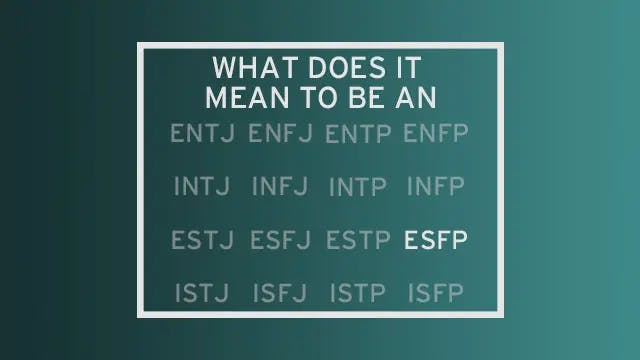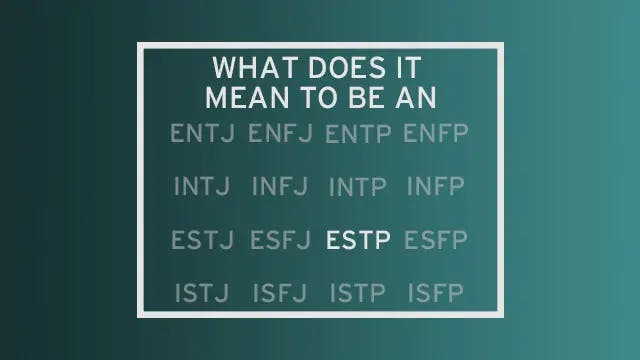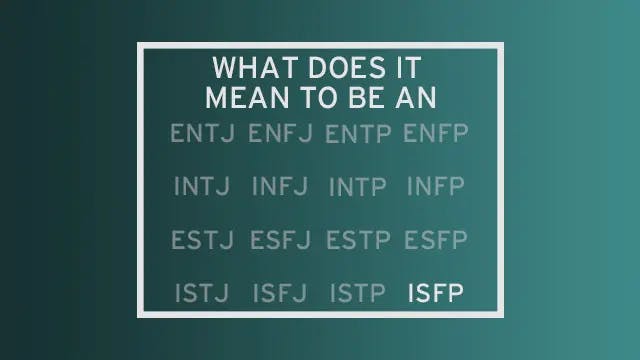
In this article, we seek to understand the INFP personality type. Known as the "Mediator" in the Myers-Briggs Type Indicator, INFPs are described as soulful, empathetic individuals who value personal connections and deeply held values.
INFPs can connect with Jesus by emphasizing their intuitive exploration of faith, emotional connection with God, preference for flexible approaches, and the power of solitude for reflection and prayer.
INFP at a Glance
First things first, INFP stands for introverted, intuitive, feeling, and perceiving. These words make up the soulful, idealistic, and empathetic nature of the INFP. They’re often described as dreamers and idealists, with an internal compass that guides their decisions based on their deeply held values.
Introverted: This doesn't necessarily mean shy (though it can mean that), it just means INFPs are energized by their own internal world and need some alone time to recharge. They can still enjoy social situations, but they also appreciate the peace and quiet of their own company or the company of a few close friends.
Intuitive: Rather than focusing on concrete details, INFPs prefer to focus on the big picture and love to find deeper meaning and patterns. They have an uncanny ability to understand concepts and ideas, with a dash of creativity.
Feeling: INFPs make decisions based on their feelings and values. They're all heart, empathetic, and often put others' feelings before their own. They don't just want to understand their feelings; they want to understand yours too.
Perceiving: INFPs are open-minded and prefer to keep their options open. They appreciate spontaneity and flexibility and love going with the flow rather than structure and strict planning. They resist being boxed in by rigid schedules or expectations.
Connecting with Jesus as an INFP
Now, let's switch gears and discuss how INFPs can connect with Jesus in a way that aligns with their unique personality traits.
Firstly, their intuitive side can play a huge role in their spiritual journey. INFPs often seek a deeper understanding of the world around them and can apply this curiosity to their faith. They might enjoy studying the Bible in a way that goes beyond the words on the page, searching for patterns, themes, and deeper spiritual truths.
Exploring the metanarrative of the Bible is a great place to start for INFPs. Taking time to understand the big picture of God’s redemptive plans can be just what the INFP needs to satiate the intuitive, pattern-seeking part of their personality. Consider starting from Genesis and the Fall of Adam and Eve all the way through the end of Revelation and explore the common threads that weave their way through the whole story.
Next up, the feeling aspect of an INFP means they're likely to value a personal, emotional connection with Jesus. They might seek to experience God's love and grace on a deeply personal level. This can be through prayer, worship, or simply sitting in silence and basking in God's presence.
We must not downplay the emotional, experiential part of a relationship with Jesus. Yes, our faith should be founded on sound doctrine and logical conclusions, but there is an emotional side to our faith as well. Otherwise, seeking a personal relationship with Jesus would be fruitless labor, since there can be no relationship without personal, emotional connection.
The perceiving trait means that INFPs are more likely to appreciate a flexible and personal approach to faith. Rather than rigid doctrines or rules, they might be drawn to the transformative, living aspects of following Jesus. Of course, the INFP should not neglect routines and traditions like daily prayer and occasional fasting. While their strengths may not lay there, a daily routine is a great way to grow in our faith in Jesus. However, if the INFP is feeling too weighed down by routine and structure, it’s time to throw in some spontaneity like you would with any other relationship.
Lastly, INFP’s introverted side should be considered when trying to connect more deeply with Jesus. Solitude can be a powerful spiritual practice for INFPs. This might mean taking quiet time alone to pray, meditate, or journal. This quiet space can help them connect with Jesus, reflecting on their thoughts and feelings without the noise of the world around them.
Being an INFP means you bring a unique perspective to the world and your faith. Your empathy, idealism, and desire for authenticity make you a beautiful light in the world. However, it’s important to remember that you are not your MBTI type. The Myers-Briggs Type Indicator simply exists to describe your personality, not put you in a box.
If you are an INFP, I encourage you to try out some of these ideas to see if it helps you connect with Jesus. If they don’t work, move on and try something else that helps you connect with Jesus. I do hope, though, that these ideas either help you connect with Jesus or inspire you to try new things that do develop your connection with Jesus.



